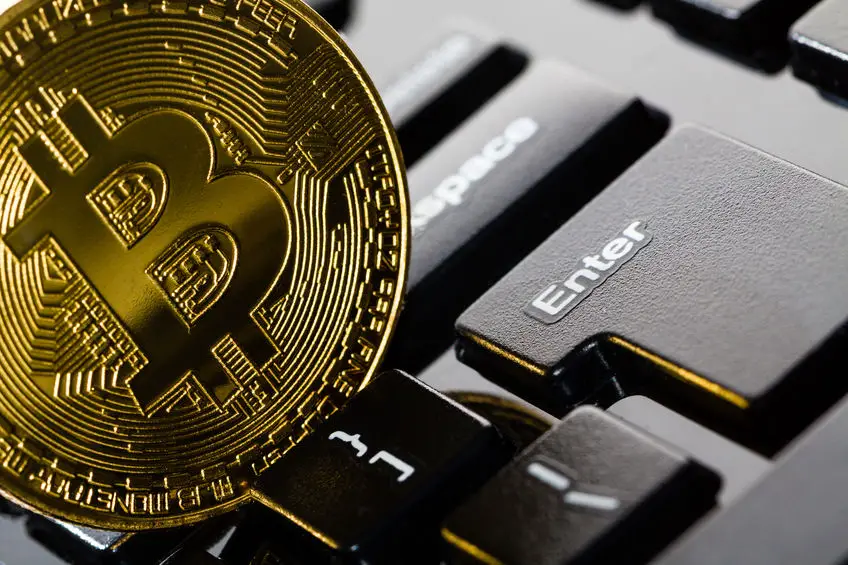Is it Finally Time to Buy Your First Bitcoin?
Bitcoin on Corporate Balance Sheets
In September 2020, MicroStrategy (MSTR) became one of the first public companies to redeploy it’s idle cash from short-term government securities to Bitcoin, to the tune of about $425 million. Then in February 2021, Tesla bought $1.5 billion in Bitcoin and announced they were working on a way to accept payment for Tesla’s electric cars via Bitcoin.
Tesla and its CEO Elon Musk command so much respect in and outside of the financial world, and their de facto endorsement of the #1 cryptocurrency sent it’s value soaring about 20% the day of the announcement. MSTR stock has also been soaring as a way to invest in Bitcoin without actually having to buy it.
The Case Against Crypto
Cryptocurrencies are not without faults. Bitcoin has been very volatile; in the past year it went from being down about 50% to up about 300%.
Because it is not tied to the full faith and credit of any government or tangible commodity like gold, it is certainly possible for it to be come worthless. Cryptocurrencies have been a preferred currency for online drug dealers, ransomware purveyors, money launderers, and other criminals due to the anonymity aspect of them.
Some cryptocurrency exchanges and wallet providers have failed or gone bankrupt.
People working in certain government jobs or in the securities industry may be banned from buying and selling cryptocurrency. Tax treatment is not favorable in that you don’t get capital gains tax treatment when you sell cryptocurrency, even if you have held it for many years.
The U.S. government or other world powers might at some point feel threatened by cryptocurrencies and evoke capital controls and other legislation to devalue cryptocurrencies, force conversion back to USD, or make it effectively illegal to own. There was even a story recently about a guy who forget his password to his cryptocurrency wallet and was thus unable to access $220 million of his own money.
Acceptance as Form of Payment
All of that being said, the Tesla decision might, I stress might, be the beginning of bringing Bitcoin to the mainstream of corporate America.
Even if other companies don’t invest their corporate treasury cash into Bitcoin, accepting Bitcoin as a form of payment would make it more useful and might help hedge against a government entity shutting it down if its citizens get used to paying for things with it.
It is similar to the problem that the anti-trust regulators have with Amazon; yes, they are a dominating market force, but people absolutely Amazon Prime and the fact that they can click a button and be confident that something will arrive at their doorstep in 2 days or less.
An Alternative Currency in Hyperinflation
Another reason people cite for finally buying Bitcoin is that COVID-19 has supercharged government deficits to a ridiculous degree. Stimulus packages of $1 Trillion are followed months later by stimulus packages of $1.9 Trillion.
No one (Democrat or Republican) seems to care about kicking the can down the road to future taxpayers that will have to re-pay massive amounts of principal and interest, on top of entitlement programs like Social Security, Medicare, Medicaid, and ACA, that will leave effectively nothing for anything else.
There have been numerous examples of government defaults throughout human history and not everyone thinks that the United States or any other country is necessarily immune.
If the United States dollar hyperinflates and it costs something like $1 Million to buy a loaf of bread, it is conceivably possible that Bitcoin could “hold” its value if you could still trade it for non-hyperinflated currencies. It is by no means guaranteed.
It might also become hyperinflated and lose its value; it’s also possible it could become worthless if hyperinflation brought on another Great Depression and it couldn’t be converted to any other currency or to hard assets like food, solar panels, farm land, etc.
Fear of Losing Out
There is also the fear of losing out. A very small fraction of the American population owns any Bitcoin at all. However, a large portion of the population has heard something about it.
People are starting to recognize the fact that the value of Bitcoin has soared the past year. For many investors, the fear of missing out is tremendously motivating. It can drive irrational, bandwagon behavior where people pile on to something that has already shot up in value, because they don’t want to miss out if it keeps shooting up.
Even though they may know deep down that they should stay the course and just invest in an S&P 500 index fund that meets, but doesn’t beat, the market (or leave their money in their checking account). It’s the same mentality that sometimes is prevalent in real estate, “If I don’t buy now, I’ll be priced out forever.”
You Only Live Once
While they may be compelling to some, none of these reasons drove me to buy my first Bitcoin. In fact, since it was priced at around $42,000 per Bitcoin, it was actually a purchase of about 0.04 Bitcoins — it is pretty easy to buy fractional shares of cryptocurrency.
It was more of a YOLO (You Only Live Once) purchase. Meaning that even if it went to zero, the most I was going to lose was $2000 and it would make a good story.
On top of just trying something new, I also liked the idea of having an account already set up in the event that normal retail transactions starting taking place with Bitcoin.
We will more than likely do a more detailed step-by-step guide in the future, but for those who want to dip their feet in Bitcoin, the easiest way to do it is probably to sign up for a Coinbase account and/or a Crypto.com account.
Both of these exchanges typically run promotions like getting $10 to join when you click on a referral link (the referring party also gets $10) once you open an account and deposit $100.
There are other wallets and exchanges for Bitcoin, but I haven’t studied them in detail, so I just deferred to the most popular ones that I have heard the most about. Once you sign up, login and you can start tracking real-time movements in the latest prices of Bitcoin and other cryptocurrencies (Etherium, LiteCoin, Maker, etc.).
Whatever you do, don’t invest any amount of money into Bitcoin that you cannot afford to lose.

